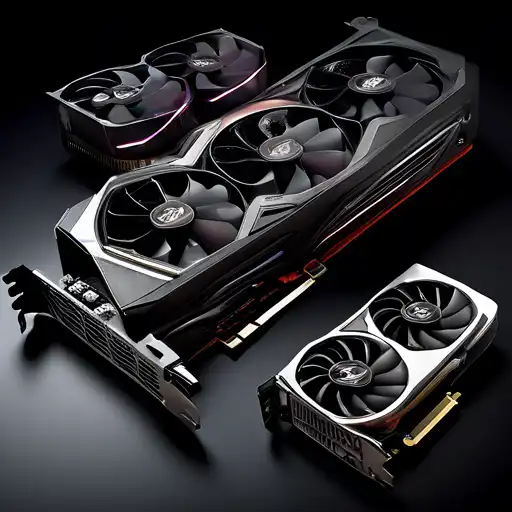Introduction to Choosing the Right GPU
Choosing the right GPU (Graphics Processing Unit) is crucial for an optimal gaming experience. Whether you're building a new PC or upgrading an existing one, the GPU plays a pivotal role in rendering graphics, ensuring smooth gameplay, and future-proofing your system. This guide will walk you through the key factors to consider when selecting the perfect GPU for your gaming setup.
Understanding GPU Specifications
Before diving into the market, it's essential to understand the specifications that define a GPU's performance. These include:
- Core Clock Speed: Measured in MHz, this indicates how fast the GPU can process graphics.
- Memory: VRAM (Video RAM) is crucial for storing textures and frames. More VRAM allows for higher resolution textures and better performance at higher resolutions.
- Memory Bandwidth: This affects how quickly the GPU can access the VRAM, impacting performance in high-resolution gaming.
- CUDA Cores/Stream Processors: These are the GPU's processors. More cores mean better performance in rendering graphics.
Matching the GPU to Your Gaming Needs
Not all games require the same level of GPU performance. Here's how to match the GPU to your gaming preferences:
- Casual Gaming: For less demanding games or older titles, a mid-range GPU with 4GB to 6GB of VRAM is sufficient.
- High-End Gaming: For the latest AAA titles at high settings, look for a high-end GPU with 8GB or more of VRAM.
- 4K Gaming: Requires top-tier GPUs with high memory bandwidth and at least 8GB of VRAM for optimal performance.
Considering Your Budget
GPUs come in a wide range of prices. Setting a budget beforehand can help narrow down your options. Remember, the most expensive GPU isn't always the best choice for your specific needs. Balance performance with cost to get the best value.
Future-Proofing Your Investment
Technology evolves rapidly. To ensure your GPU remains relevant for years to come, consider:
- Support for Latest APIs: Ensure the GPU supports DirectX 12 or Vulkan for compatibility with future games.
- VR Readiness: If you're interested in virtual reality, look for GPUs that meet the recommended specs for VR headsets.
- Power Efficiency: More efficient GPUs consume less power, reducing heat and electricity costs over time.
Final Thoughts
Selecting the right GPU involves balancing performance, budget, and future needs. By understanding the specifications and how they align with your gaming preferences, you can make an informed decision that enhances your gaming experience. For more tips on building or upgrading your gaming PC, check out our ultimate gaming PC guide.
